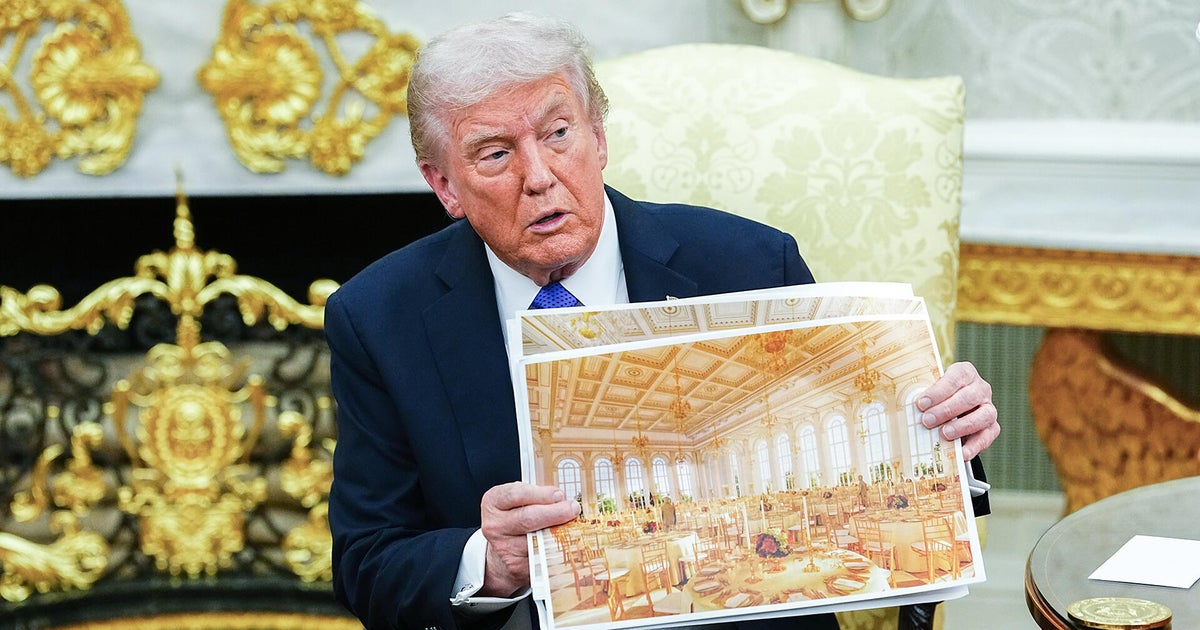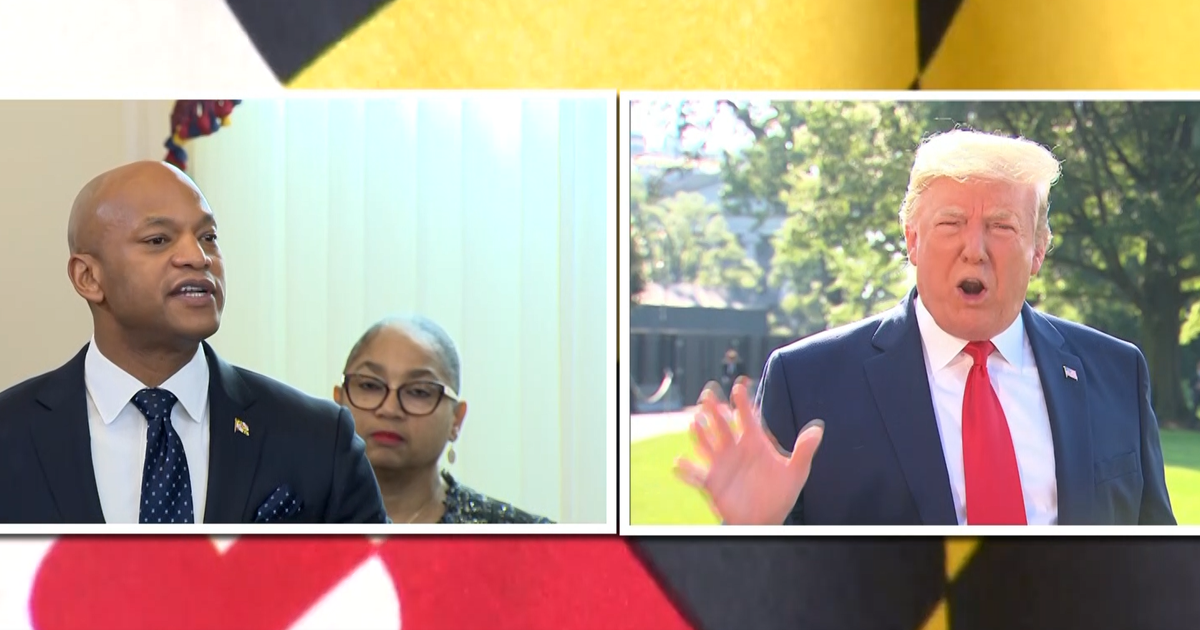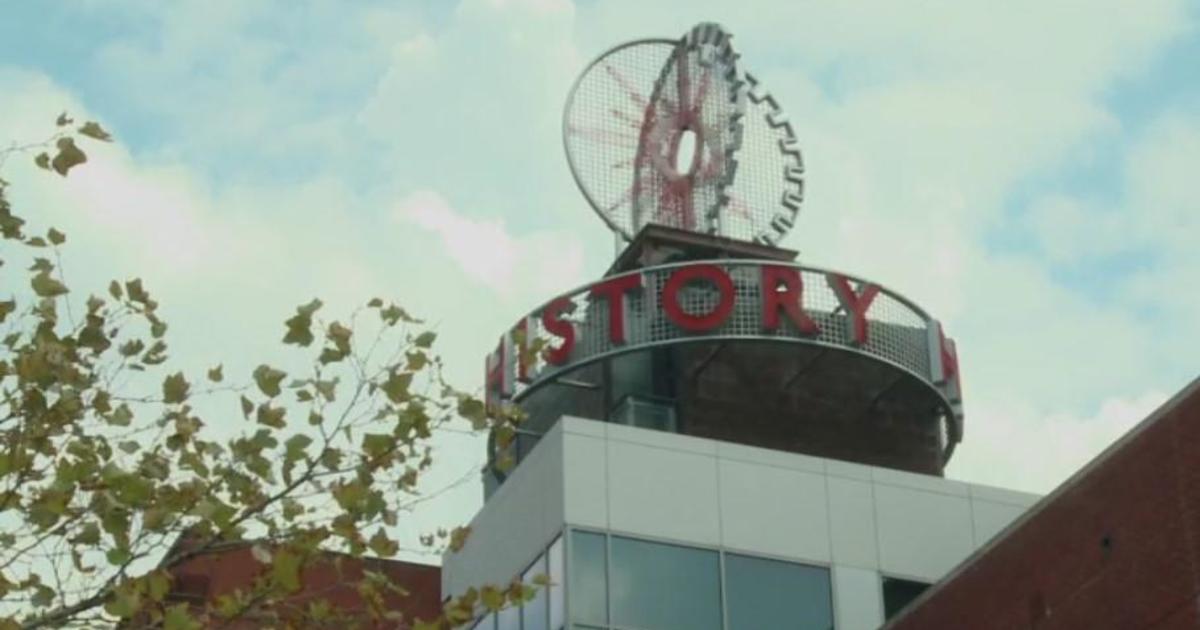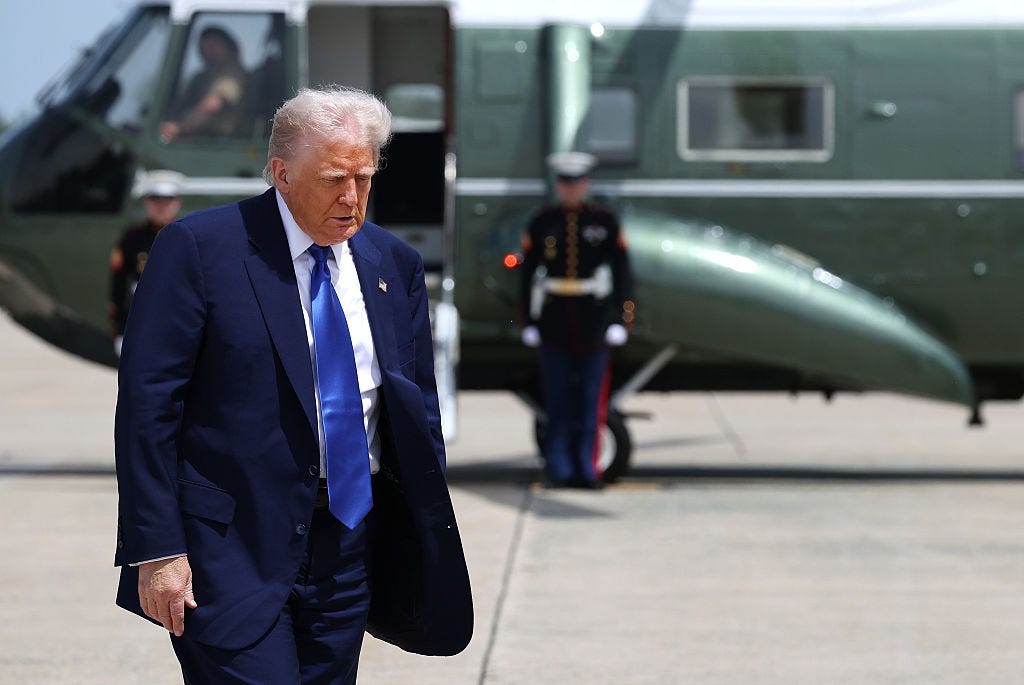Transcript: National security adviser John Bolton on "Face the Nation," March 3, 2019
The following is a transcript of an interview with White House national security adviser John Bolton that aired Sunday, March 3, 2019, on "Face the Nation."
MARGARET BRENNAN: Good morning and welcome to "Face the Nation." We begin today with President Trump's national security adviser Ambassador John Bolton. Good to have you here.
AMBASSADOR JOHN BOLTON: Glad to be with you.
MARGARET BRENNAN: We had different versions of the story as to why this summit failed to produce any results. Why was the president unable to negotiate a breakthrough?
AMBASSADOR BOLTON: Well I don't consider the summit a failure. I consider it a success defined as the president protecting and advancing American national interest. There was extensive preparation for this meeting. Extensive discussions between the president and Kim Jong Un and- and the issue really was whether North Korea was prepared to accept what the president called "the big deal," which is denuclearize entirely under a definition the president handed to Kim Jong Un and have the potential for an enormous economic future or try and do something less than that which was unacceptable to us. So the president held firm to his view. He deepened his relationship with Kim Jong Un. I don't view it as a failure at all when American national interests are protected.
MARGARET BRENNAN: But to be clear, North Korea still has not agreed to denuclearize as the U.S. defines it.
AMBASSADOR BOLTON: Not as we have defined it although they have committed in public in prior regimes in North Korea-- four or five times in writing to denuclearize and that's something--
MARGARET BRENNAN: So that doesn't mean much to you.
AMBASSADOR BOLTON: --We expect them to do if they reach an agreement with us.
MARGARET BRENNAN: Well on the specifics, a senior State Department official spoke to reporters and said that what the North Koreans proposed specifically was about dismantling the three mile Yongbyon complex which he defined as quote, "the totality of North Korea's plutonium reprocessing and uranium enrichment programs in exchange for lifting all sanctions except those on the weapons programs." Did the U.S. make a counter offer?
AMBASSADOR BOLTON: Well, the counter offer has been there from the beginning-- from- from the very first summit back in Singapore, which is if North Korea commits to complete denuclearization-- including its ballistic missile program and its chemical and biological weapons programs, the prospect of economic progress is there. The president--
MARGARET BRENNAN: But that's not what North Korea put on the table--
AMBASSADOR BOLTON: That's not what they--
MARGARET BRENNAN: They put on this narrow definition.
AMBASSADOR BOLTON: A very limited concession by the North Koreans involving the Yongbyon complex which includes an aging nuclear reactor and some percentage of their uranium enrichment plutonium reprocessing capabilities. In exchange, they wanted substantial relief from the sanctions. Now, one thing President Trump has said beginning in the 2016 campaign is that he's not going to make the mistakes of prior administrations and get into this action for action kind of arrangement which benefits--
MARGARET BRENNAN: So there was no counter offer.
AMBASSADOR BOLTON: --the North Koreans. Our counter offer was where we have been where the president's has exercises persuasive abilities on Kim Jong Un to take the big deal and they weren't willing to do it.
MARGARET BRENNAN: But what made the president stake out this maximalist position?
AMBASSADOR BOLTON: It's not--
MARGARET BRENNAN: You negotiated with the North Koreans before, going back to 2002. Did you see the same pattern playing out now?
AMBASSADOR BOLTON: I think the difference that President Trump has articulated to the North Koreans is the future for them once they make the strategic decision to denuclearize. What they've done before is promise to denuclearize, get economic benefits in return and then renege on the deal. What the president was trying to get them to do is look at what was possible for them overall. And I think he remains optimistic that this is possible. Kim Jong Un himself said in our last meeting, you know we're going to go through many stations on- before we achieve this deal. The meeting in Hanoi was one such station. So the president is ready to keep talking.
MARGARET BRENNAN: Are you expecting North Korea to come back with an offer?
AMBASSADOR BOLTON: I don't know what they're going to do. I think the president himself said that he expects they'll want to go back and re-evaluate what happened certainly we will- we'll look at continuing the economic sanctions against North Korea which brought them to the table in the first place. We'll see what happens next.
MARGARET BRENNAN: But in the meantime, North Korea can still produce nuclear fuel.
AMBASSADOR BOLTON: And they have been doing it. Yes, they have. That's exactly correct.
MARGARET BRENNAN: So they're a growing threat.
AMBASSADOR BOLTON: Well, I think our objective remains to find a way to get them to denuclearize. The president's trying this negotiation but his objective has always been denuclearization.
MARGARET BRENNAN: Is the window for diplomacy about to close here? I mean this is- this seems like an open ended timeline.
AMBASSADOR BOLTON: I wouldn't- I wouldn't say it that way. Look, the president opened the door for North Korea in Singapore and they didn't walk through. He kept the door open--
MARGARET BRENNAN: Eight months ago.
AMBASSADOR BOLTON: He kept the door open during that eight month period. He kept it open in Hanoi. The North Koreans can walk through it, it's really up to them. That's the diplomatic window.
MARGARET BRENNAN: When you were on this program last July though you said the plan was to dismantle North Korea's nuclear facilities and have it turn over its weapons of mass destruction within a year.
AMBASSADOR BOLTON: What--
MARGARET BRENNAN: Is that still a realistic timeline?
AMBASSADOR BOLTON: No, the question you asked then was operationally how long would it take. There was some dispute within the U.S. government over a period of time, once North Korea made the strategic decision to give up its weapons of mass destruction and ballistic missiles, how long would it take to conduct that dismantlement and with a few exceptions our judgment was we could finish it within a year. Once the process started.
MARGARET BRENNAN: So you still think it'll take a year to dismantle it?
AMBASSADOR BOLTON: This is--
MARGARET BRENNAN: But you acknowledged they haven't even agreed to denuclearize--
AMBASSADOR BOLTON: No, no they have not agreed. Exactly.
MARGARET BRENNAN: --and there's no expiration date on this offer to continue to negotiate?
AMBASSADOR BOLTON: There- there is no expiration date. As I say, the president is fully prepared to keep negotiating at lower levels or to speak to Kim Jong Un again when it's appropriate.
MARGARET BRENNAN: But aren't they a growing threat if they can continue to develop nuclear fuel? Doesn't the leverage get reduced on our end?
AMBASSADOR BOLTON: I don't think the leverage gets reduced because I think we will keep the maximum pressure campaign in place even before the summit. We were looking at ways to tighten it up to- to stop for example the ship to ship transfers that the North Koreans are using to evade the sanctions, to talk to other countries to make sure they tighten up on North Korea. It was the sanctions that brought the North Koreans to the table. It's the sanctions they want relief from and relief they can get if they denuclearize.
MARGARET BRENNAN: Before the president went to Hanoi was the U.S. aware that North Korea would not allow anything beyond the Yongbyon complex? I mean the second uranium enrichment site that the president nodded to in his press conference. Did you know that was not on the table?
AMBASSADOR BOLTON: Well we don't know what's on the table from- from North Korea until it comes out of the mouth of Kim Jong Un, the chairman. He's calling--
MARGARET BRENNAN: Well that's the diplomats are supposed to be laying the groundwork for. So the president doesn't walk away with a failure.
AMBASSADOR BOLTON: He- he didn't walk away with a failure. Unless you're prepared to say that it would be better to accept a bad deal than to walk away from no deal, to me that's a success.
MARGARET BRENNAN: So you thought that nothing else was on the table. You were just testing the prospects by sending the president to Hanoi?
AMBASSADOR BOLTON: No, no, no. We- we honestly didn't know. I mean it's- it's not unusual in these circumstances to find that there are additional concessions that the other side might make. But we've tried to make it clear to them- as again the president has said this repeatedly we're not going to make the mistakes of past administrations. We're not going to make the mistake that Obama made in the Iran nuclear deal. What we want is denuclearization broadly defined as the president himself laid out for Kim Jong Un in the paper that he gave him.
MARGARET BRENNAN: So- but you've tested this proposition now of what it's like to negotiate top down?
AMBASSADOR BOLTON: Well we've had two- we've had two meetings.
MARGARET BRENNAN: This is now the- what- fourth commander in chief to try to do this? There's a very different approach but the success rate hasn't been anything more than in the past.
AMBASSADOR BOLTON: Well the success rate in the past was zero. So that's not a hard bar to overcome. There's a- there's an argument that proceeding deductively rather than inductively makes a lot of sense. We've had two meetings. We-we'll see what happens next.
MARGARET BRENNAN: But in the meantime, as we say, they can still produce nuclear fuel. And as you saw after the president left Hanoi, Kim Jong Un stayed there. I mean he was walking around touring hot spots in Vietnam. He no longer looks like a pariah. Didn't he gain from this?
AMBASSADOR BOLTON: I don't think that's the president's view at all.
MARGARET BRENNAN: He sat across from the president almost as if an equal.
AMBASSADOR BOLTON: He- he did that in Singapore. The president's view is he gave nothing away.
MARGARET BRENNAN: But do you actually believe that?
AMBASSADOR BOLTON: The president's view is he gave nothing away. That's- that's what matters, not my view. As I've said before, I guess I can't get people to listen so I'll try it one more time, I'm the national security advisor. I'm not the national security decision maker.
MARGARET BRENNAN: Well- well your views have been well documented in the past.
AMBASSADOR BOLTON: Usually by me. I mean I've written a lot- I've written a lot in the past--
MARGARET BRENNAN: You've been skeptical for--
AMBASSADOR BOLTON: And--
MARGARET BRENNAN: --many, many years.
AMBASSADOR BOLTON: And as I've said, those- those views are out there. Anybody can read them.
MARGARET BRENNAN: Right.
AMBASSADOR BOLTON: My job now is to help the president, give him his advice, give him my advice. He'll make the decisions.
MARGARET BRENNAN: And to be clear the administration still is no longer advocating regime change?
AMBASSADOR BOLTON: The position of the administration is we want denuclearization of North Korea and that's the objective we're pursuing.
MARGARET BRENNAN: And you still believe that Kim Jong Un can deliver on that?
AMBASSADOR BOLTON: I think he is the authoritative ruler of that country and if he were to make the strategic decision to denuclearize, we think it would happen.
MARGARET BRENNAN: The president was asked about this American student Otto Warmbier who died tragically after being released after some brutal treatment in North Korean captivity. When was it that the president actually brought up his case to Kim Jong Un?
AMBASSADOR BOLTON: Well, that was in one of the meetings in- on- on- the second day, I think, and look--
MARGARET BRENNAN: In Hanoi?
AMBASSADOR BOLTON: In Hanoi. The president's been--
MARGARET BRENNAN: Is that the first time he brought it up?
AMBASSADOR BOLTON: No I think it's been brought up before. I think it was brought up in Singapore. But the president's been very clear he viewed what happened to Otto Warmbier as barbaric and unacceptable and I think the best thing North Korea could do right now would be to come up with a full explanation of exactly what happened to him.
MARGARET BRENNAN: But it seemed to suggest that the president, since he said he took Kim Jong Un at his word, was willing to put aside these egregious human rights abuses and basically the killing of an American while in captivity.
AMBASSADOR BOLTON: Listen, I've heard the president talk about Otto Warmbier on any number of occasions in the Oval Office. And I know how strongly he feels about it. I have no doubt of that whatever.
MARGARET BRENNAN: I want to ask you on another topic about this American, Hoda Muthana, an ISIS bride, born in New Jersey, living in Alabama before she went to live within the Caliphate. She told CBS that she is a U.S. citizen, that she traveled to Syria on an American passport. Why not have her face the consequences of her actions in a U.S. court?
AMBASSADOR BOLTON: My understanding is that she is not a U.S. citizen. That's- that's the take of the State Department at this point.
MARGARET BRENNAN: Well they issued her passport.
AMBASSADOR BOLTON: You know, look, all I can say is what- what I've been informed and that's the position we take. But you know, just as an- as a general proposition, Americans can renounce their citizenship by their words and by their actions aligning with foreign powers. I think you have to look at each case on- on its own. And if she's got evidence of citizenship, she needs to present it. We'll take a look it.
MARGARET BRENNAN: But doesn't this get to this broader challenge for the administration of what to do with these members of ISIS who had her citizenship revoked by their host countries? Where do they go to face trial? I mean if- if the claim here is that she's not American but truly Yemeni, you're not going to send her to Yemen. Where does she actually face justice?
AMBASSADOR BOLTON: Certainly the- the situation of the 800 to a 1,000 ISIS prisoners that are being held by the Syrian opposition in northeast Syria is very much on our mind. We've spoken to our European allies about some of them taking their citizens back. We're looking at what to do with the rest of them. It's one reason frankly we'd like to successfully negotiate the status of northeast Syria so that the prisoners for the foreseeable future can stay exactly in the prison facilities there and now.
MARGARET BRENNAN: But you might bring some of them to United States to face trial.
AMBASSADOR BOLTON: It- it's a possibility but we're- we're not eager to have simply pick up that responsibility we think others have the responsibility too and- and that's the approach we're taking.
MARGARET BRENNAN: Before I let you go I want to ask you the House Oversight Chairman Elijah Cummings has requested information about your personal security clearance. Is there anything you know of that would have raised a red flag what he's looking for here?
AMBASSADOR BOLTON: Not- not at all. You know someday I'll be a private citizen again and I'd be delighted to take this nonsense on in detail. But as a White House official right now threatened with subpoenas, with a lot of other things that's going on in Congress, I'll take guidance from the White House Counsel's Office and the Justice Department and just wait for the day when I'm a private citizen.
MARGARET BRENNAN: But counsel, the White House, will respond to this?
AMBASSADOR BOLTON: They will respond to it, that's correct.
MARGARET BRENNAN: Ambassador Bolton, thank you for joining us.
AMBASSADOR BOLTON: Thank you.



